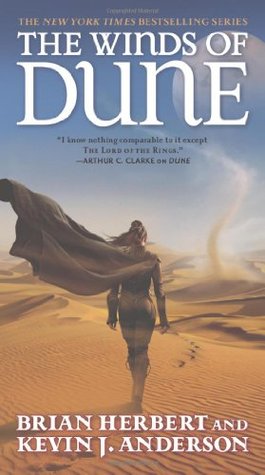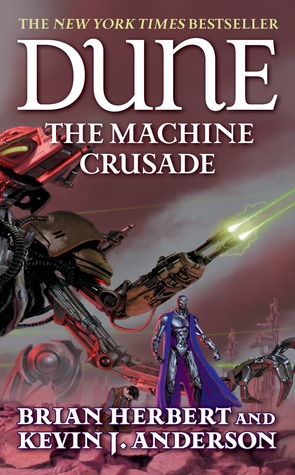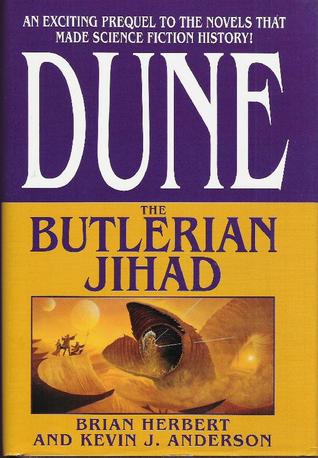
4 stars
First Sentence: The unscheduled ship loomed in orbit over Caladan, a former Guild Heighliner pressed into service as a Jihad transport.
Thoughts: At the end of Dune Messiah Paul Atreides, the Emperor Muad’dib, is blinded by an atomic blast and goes out into the desert to die like a proper Fremen. This is the story of the immediate aftermath of this decision, specifically how his mother Jessica dealt with her grief and how his sister Alia consolidated her rule as Regent until Paul’s children could take over the empire.
I’ve always felt sorry for Alia. She’s the whipping girl of the entire Dune series, even before her birth. When Jessica was pregnant with her, she took a massive overdose of spice to become the priestess of Sietch Tabr. The spice passed to Alia, giving her awareness before she was even born as well as giving her access to Other Memory, the memory of all her female ancestors to the nth degree. This made Alia a very strange child, an adult even in infancy. The Bene Gesserit called her an Abomination. The Fremen thought she was sacred. Meanwhile Alia was all alone, trying to deal with all the voices in her head until they overwhelmed her. Maybe if she had been a twin like Paul’s children (also pre-born due to all the spice Chani took during her pregnancy) she might have been able to survive but she wasn’t and didn’t.
Here, however, Alia seems fully determined to embrace the Abomination label. She follows her brother’s footsteps as a cruel tyrant, but she lacks his prescience to see the ultimate goal of his actions. She has to be tough to keep the Empire from falling to pieces after the death of its God-Emperor. The priesthood is going off half-cocked, assassins are everywhere, and Bronso of Ix is surreptitiously publishing pamphlets calling out Paul for his worst atrocities and reminding people that he was only a man, not a god.
Jessica, meanwhile, is trying to hold things together on Caladan. When some of the priests of Muad’dib pop by to announce that they’re changing the name of the planet to properly reflect its importance as the birthplace of their god, the populace takes up arms and starts talking about seceding from the empire. Right when things are at the most sensitive, the Bene Gesserit summons Jessica back to the motherhouse on Wallach IX. This is not a coincidence. The witches have their own plans for regaining their power in the power void. Things do not go well for the Bene Gesserit and Jessica formally breaks from the Sisterhood.
Once things on Caladan have calmed down, Jessica and Gurney Halleck go to Dune for Paul and Chani’s funeral. There they’re confronted with Duncan Idaho who was killed in Dune and brought back as a ghola in Dune Messiah. Duncan keeps insisting that he’s the same person they knew way back when, but Gurney’s not so sure. For one thing Duncan seems to be more loyal to Alia than to the whole of House Atreides. This could be because Duncan and Alia are engaged, it could be because Duncan’s a Mentat (human computer) now, or it could be because he, like everyone else, has been changed by the events of the last fifteen years. Still, Gurney joins Duncan in the search for Bronso of Ix. Then Jessica steps in and tells Gurney that he needs to defy Alia and leave Bronso alone.
Interspersed with all of this are flashbacks of Paul’s youth, specifically his adventures with the young Bronso back when they were both mere scions of noble houses. They run off to join the Jongleurs, a group of extremely talented actors and acrobats with secret mental powers they use to hid their real purpose. This leads to the truth behind Bronso’s smear campaign and Paul’s decision to die. Like everything else in the Dune universe, there are wheels within wheels and plans within plans.



